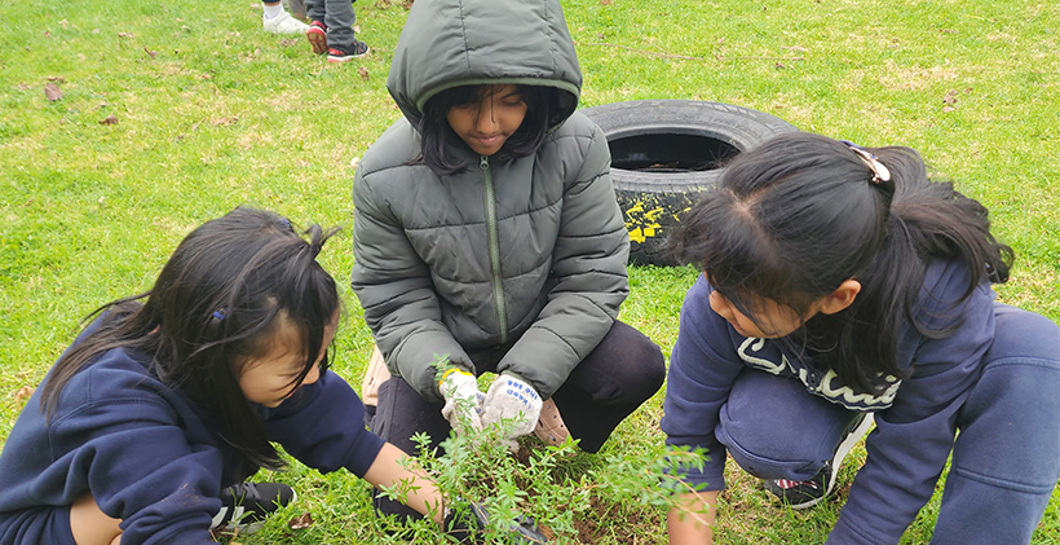Small South Auckland School Plants a Forest

A small school in urban South Auckland is taking big steps to care for Papatuanuku—one tree at a time.
Favona School, home to 300 students—has begun transforming its school grounds by planting a native forest. With support from Auckland Council’s Sustainable Schools team, students are learning firsthand how trees improve the environment, provide habitat, and help combat climate change.
Located in Māngere-Ōtāhuhu, the local board with the lowest tree canopy coverage in Auckland (just 8%), the school is leading by example, showing how Tamariki can play an active role in restoring nature in urban spaces.
An urban Ngahere
This project isn’t just about planting trees—it’s about learning how to care for them, understand their importance, and create a legacy for future students. Before the first trees were even in the ground, students and teachers designed a planting plan, sketching out their vision for the forest.
With support from the Sustainable Schools team, students learned about different native species, how tall they will grow, what native animals they will support, and where they should be planted. Teachers also gained valuable knowledge through the Planting for Success workshop, helping them guide their students through the process.

On planting day, students worked together to position 60 native trees, carefully placing cardboard around them to suppress weeds and ensure healthy growth. The trees will be monitored and cared for by students in the coming years, with more planting planned for 2025 and 2026.
Growing More Than Just Trees
At Favona School, trees are an important part of the school identity. Their syndicates are named after native trees—Kōwhai, Mataī, Miro, and Rātā—and now, their school grounds will reflect that same connection to nature.
Teacher Ashweni Reddy shared her excitement about the project:
"The students and I managed to draw up a plan for our forest. Our forest is 15m long and 7m wide. Some small, medium, and tall trees."
This hands-on project is teaching students about biodiversity, and the importance of kaitiakitanga. It’s also fostering a sense of ownership and pride, with students taking the lead in maintaining their forest for years to come.
With support from Tiny Forest, ME Family Services, and Sustainable Schools, Favona School is proving that even a small school can make a big impact.

Supported by the Natural Environment Targeted Rate
This project is supported by the Enviroschools programme in Tāmaki Makaurau, which is made possible through the support of the Natural Environment Targeted Rate (NETR). This funding ensures that schools like Favona can access the resources, expertise, and support needed to develop long-term, student-led environmental projects that create lasting benefits for their communities and the environment.
What’s Next?
-
More trees will be planted in 2025 & 2026
-
Students will monitor growth and track biodiversity
-
The school will celebrate with a Holistic Reflection event
Through their efforts, these young kaitiaki are not only transforming their school—they’re helping create a greener future for Tāmaki Makaurau.



